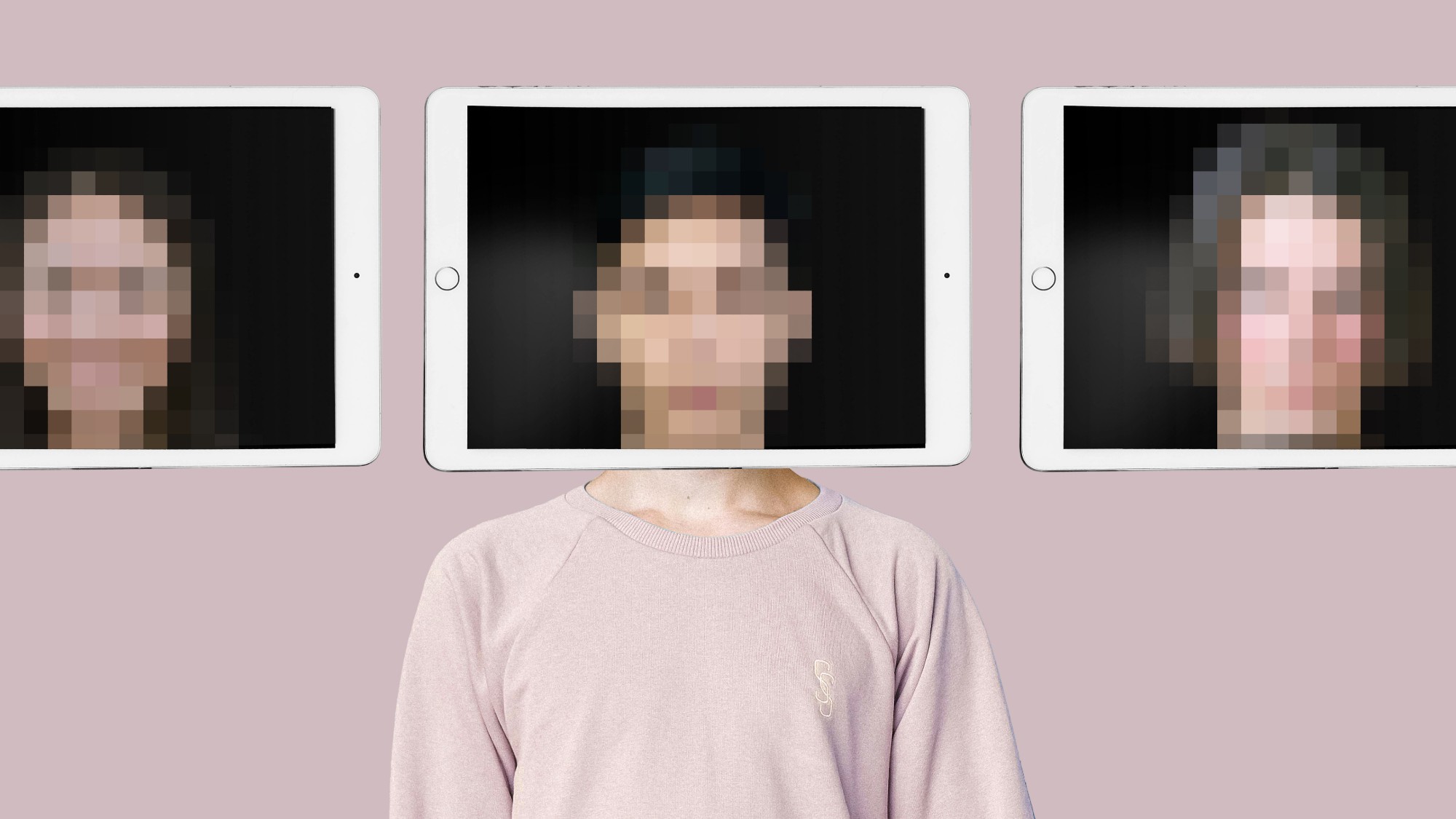Deepfakes and impostors: the brave new world of AI jobseeking
More than 80% of large companies use AI in their hiring process, but increasingly job candidates are getting in on the act

A free daily email with the biggest news stories of the day – and the best features from TheWeek.com
You are now subscribed
Your newsletter sign-up was successful
"It's a strange new world out there" for hiring managers, said Brit Morse in Fortune. Just ask Dawid Moczadło, the cofounder of Vidoc Security Lab, whose footage of a weird Zoom call with a job applicant recently went viral after he posted it on LinkedIn. During the interview, the candidate's face blurred and glitched repeatedly. Suspecting that the candidate was using an AI filter to disguise his appearance, Moczadło asked him to hold his hand in front of his face, to disrupt the filter. The request was repeatedly ignored, so he terminated the interview.
Moczadło's experience is far from unique. According to a survey in March, around 17% of hiring managers in the US have encountered candidates using deepfake technology in video interviews. It seems to be a particular problem in IT. One executive recently found that, out of 827 applications for a software job, about 100 were attached to fake identities. Some bogus applications are from those trying to boost their income; others, more worryingly, are North Korean IT workers targeting sensitive company data.
AI technology is being used for less serious forms of cheating as well, said Parmy Olson on Bloomberg. A Columbia University student was recently suspended for creating an AI tool that provides software engineers with real-time answers to coding questions they're presented with during interviews. It all appears on a translucent screen that a screen-sharing interviewer can't see.
The Week
Escape your echo chamber. Get the facts behind the news, plus analysis from multiple perspectives.

Sign up for The Week's Free Newsletters
From our morning news briefing to a weekly Good News Newsletter, get the best of The Week delivered directly to your inbox.
From our morning news briefing to a weekly Good News Newsletter, get the best of The Week delivered directly to your inbox.
Employers "created this problem for themselves". More than 80% of large companies use AI somewhere in hiring – to generate job descriptions, say, or screen candidates – and one in four use it for the entire recruitment process. This has fuelled an arms race with applicants, who are devising new ways to game the system and "slip through AI gatekeepers".
The embrace of AI is creating headaches for people on both sides, said Taylor Telford in The Washington Post. Applicants can use ChatGPT to optimise CVs and cover letters, and auto-apply to hundreds of roles; but their application faces being screened out by a machine. One recruiter was shocked recently when a candidate thanked her on LinkedIn for sending a personalised rejection letter – a gesture that highlights the overall lack of a "human touch" in the process.
Hiring managers can use AI tools to run cheap recruitment drives, yet they are struggling to "find real qualified workers amid the bots, cheaters and deepfakes"; many employers are having to fall back on old-school methods, such as referrals from contacts. The problem may be mostly in the IT sector for now, but it is likely to spread. "Tech is the canary in the mine here," says one recruiter. "This is what it's going to look like for everybody in a year."
A free daily email with the biggest news stories of the day – and the best features from TheWeek.com
-
 What is the endgame in the DHS shutdown?
What is the endgame in the DHS shutdown?Today’s Big Question Democrats want to rein in ICE’s immigration crackdown
-
 ‘Poor time management isn’t just an inconvenience’
‘Poor time management isn’t just an inconvenience’Instant Opinion Opinion, comment and editorials of the day
-
 Bad Bunny’s Super Bowl: A win for unity
Bad Bunny’s Super Bowl: A win for unityFeature The global superstar's halftime show was a celebration for everyone to enjoy
-
 Moltbook: The AI-only social network
Moltbook: The AI-only social networkFeature Bots interact on Moltbook like humans use Reddit
-
 Are AI bots conspiring against us?
Are AI bots conspiring against us?Talking Point Moltbook, the AI social network where humans are banned, may be the tip of the iceberg
-
 Silicon Valley: Worker activism makes a comeback
Silicon Valley: Worker activism makes a comebackFeature The ICE shootings in Minneapolis horrified big tech workers
-
 AI: Dr. ChatGPT will see you now
AI: Dr. ChatGPT will see you nowFeature AI can take notes—and give advice
-
 Claude Code: Anthropic’s wildly popular AI coding app
Claude Code: Anthropic’s wildly popular AI coding appThe Explainer Engineers and noncoders alike are helping the app go viral
-
 Will regulators put a stop to Grok’s deepfake porn images of real people?
Will regulators put a stop to Grok’s deepfake porn images of real people?Today’s Big Question Users command AI chatbot to undress pictures of women and children
-
 Most data centers are being built in the wrong climate
Most data centers are being built in the wrong climateThe explainer Data centers require substantial water and energy. But certain locations are more strained than others, mainly due to rising temperatures.
-
 The dark side of how kids are using AI
The dark side of how kids are using AIUnder the Radar Chatbots have become places where children ‘talk about violence, explore romantic or sexual roleplay, and seek advice when no adult is watching’